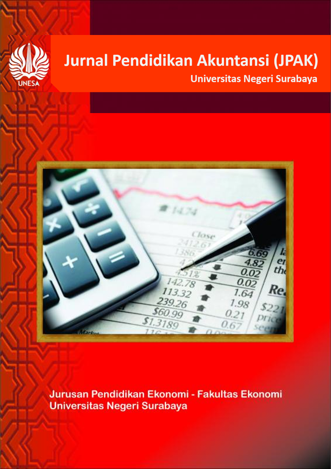Analisis Efektivitas Pembelajaran Daring dan Prestasi Mahasiswa Akuntansi Syariah di Masa Pandemi IAIN Pekalongan
DOI:
https://doi.org/10.26740/jpak.v10n2.p117-125Keywords:
Online learning; learning effectiveness; sharia accountingAbstract
Teaching and learning activities in all schools, which are usually carried out face-to-face, are now forced to be conducted online due to the COVID-19 pandemic. The purpose of this study was to obtain information about the effect of online learning during the pandemic on the learning effectiveness and achievement of Islamic accounting students at IAIN Pekalongan. The approach chosen is a descriptive qualitative approach. The data collection technique used in this research is to use the questionnaire method. The data collection was carried out online using a google form which was distributed to Islamic accounting students at IAIN Pekalongan class of 2020 who had carried out online learning activities with a total of 45 respondents via whatsapp media. The result of this research is that online learning greatly influences the learning effectiveness and achievement of Islamic accounting students at IAIN Pekalongan. The students still experience many obstacles, difficulties in understanding, mastering, and implementing the lecture materials they get online.
Downloads
Downloads
Published
How to Cite
Issue
Section
License
Authors who publish with this journal agree to the following terms:
- Authors retain copyright and grant the journal right of first publication with the work simultaneously licensed under a Creative Commons Attribution License that allows others to share the work with an acknowledgement of the work's authorship and initial publication in this journal.
- Authors are able to enter into separate, additional contractual arrangements for the non-exclusive distribution of the journal's published version of the work (e.g., post it to an institutional repository or publish it in a book), with an acknowledgement of its initial publication in this journal.
- Authors are permitted and encouraged to post their work online (e.g., in institutional repositories or on their website) prior to and during the submission process, as it can lead to productive exchanges, as well as earlier and greater citation of published work (See The Effect of Open Access).

Jurnal Pendidikan Akuntansi (JPAK) is licensed under a Creative Commons Attribution-NonCommercial 4.0 International License.
 Abstract views: 295
,
Abstract views: 295
, PDF Downloads: 331
PDF Downloads: 331



